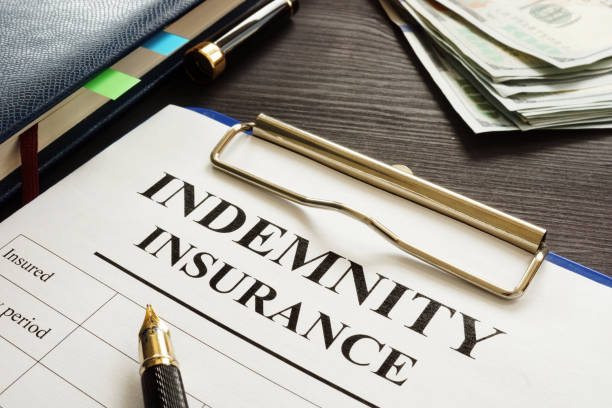Working with wires and electricity is dangerous, and even a minor error may cost you and your customer millions of dollars.
So it only makes sense to carry insurance to ensure that you don’t wind up paying for the losses.
There are many other sorts of insurance plans that an electrician may obtain, but we recommend that you look into indemnity insurance; continue reading to learn more about it.
So, What’s Professional Indemnity Insurance Anyway?
Indemnity insurance, like most insurance plans, protects the policyholder and compensates them for losses covered by the agreement.
The conditions of loss, however, distinguish it. Indemnity insurance covers damages caused by error or, in some cases, malpractice, resulting in customer losses.
Furthermore, indemnity insurance protects against claims arising from failure to perform an action or negligence, which may result in legal entanglements or financial losses.
It functions similarly to any other insurance policy in that the policyholder pays a periodic premium and the insurer provides coverage when needed under the terms of their contract.
See more Does Travel Insurance Cover Strikes
Do Electricians Need Professional Indemnity Insurance?

Do Electricians Need Professional Indemnity Insurance? Yes, electricians do require indemnity insurance, and there’s a good reason for it: a minor mistake or miscalculation can result in millions of dollars in losses.
Working with electricity is dangerous, and you must rely significantly on your experience and judgment, so mistakes are possible.
Putting in the wrong fuse or connecting the wrong wires might fry the circuits and potentially spark a fire in the structure, resulting in a lawsuit from the client.
Let’s look at an example. Assume an electrician recommends that his customer utilize a specified gauge of wire for house wiring.
However, after a few months, voltage fluctuations fry the wires, causing pricey home appliances to fail.
If the client brings a claim against the electrician for inadequate wiring advice, the indemnity insurance will cover the litigation costs.
It will also cover any damages ordered by the court against the electrician.
The Importance of Professional Indemnity Insurance for Electricians
1. Risk Reduction and Legal Defense
Electricians frequently work with complex electrical systems, and even the most qualified specialists may encounter unanticipated difficulties.
Professional indemnity insurance serves as a safety net, providing financial protection in the case of an error or oversight that results in financial loss for the client.
It reduces the dangers of delivering professional services and protecting electricians from potential legal ramifications.
2. Client Trust and Business Credibility
Professional indemnity insurance boosts an electrician’s credibility in the eyes of customers.
It indicates a dedication to accountability and providing high-quality service. When customers know there is a financial safety net in place, they are more likely to trust the electrician and, as a result, are more likely to hire their services.
Positive word-of-mouth referrals and long-term client relationships might result from this.
3. Contractual and Regulatory Conditions
Professional indemnity insurance is frequently a contractual necessity. Clients may need electricians to have this insurance as a condition of engaging in contracts.
Furthermore, regulatory organizations or industry groups in some locations may require such coverage as part of licensing criteria.
Failure to comply with these requirements may result in legal and professional consequences.
Understanding the Coverage Specifics
1. Scope of Coverage
Professional indemnity insurance for electricians often protects clients against financial losses caused by the electrician’s professional negligence, errors, or omissions.
This can include poor wiring, electrical installation mistakes, or failure to follow industry requirements. Legal fees and compensation that may be awarded to the affected party are covered.
2. Exclusions and Restrictions
While professional indemnity insurance is comprehensive, understanding its limitations and exclusions is critical.
Certain purposeful wrongdoing, criminal activity, or contractual issues may be excluded. It is critical for electricians to thoroughly check the terms of their policy to ensure they understand what is and isn’t covered.
3. Claims Process and Reporting
Electricians must follow the claims reporting method stated in their insurance policy in the event of a potential claim.
Timely and correct reporting is critical to ensuring that the insurance provider can investigate and resolve the situation as soon as possible. Failure to follow the required processes may result in claim delays or denials.
Consequences of Not Having Professional Indemnity Insurance
1. Financial Liability
The possibility of severe financial obligation is one of the most serious repercussions of not having professional indemnity insurance.
If a client suffers financial damages as a result of an electrician’s professional carelessness, the electrician may be held personally liable for the costs.
This could put a burden on personal assets as well as the viability of the electrician’s firm.
2. Legal Implications
Electricians who do not have professional indemnity insurance may find themselves facing legal action without a safety net.
Legal defense fees can be high, and if the electrician is held guilty, he or she may be forced to pay hefty restitution to the impacted party.
This not only jeopardizes the electrician’s financial security but also tarnishes their professional reputation.
3. Loss of Business Opportunities
Clients, particularly those in commercial and industrial environments, may be cautious about hiring an electrician who lacks professional indemnity insurance.
The lack of this coverage may result in missed business opportunities and decreased market competitiveness.
As a precaution against unanticipated complications, potential clients may choose electricians who have adequate insurance coverage.
How Does Indemnity Insurance Differ From Personal Liability Insurance?
Both have quite different personalities. Public liability insurance protects a firm, manufacturer, or tradesman from losses caused by the physical goods of a company, manufacturer, or tradesman.
Professional indemnity insurance protects you from losses caused by an intangible offering, such as your service, such as giving incorrect advice, misplacing critical documents, or making mistakes while working on a job.
Conclusion
Every professional giving some form of intangible value, from surgeons to lawyers and contractors, requires professional indemnity insurance to ensure they are protected if a task goes wrong.
Professional indemnity insurance is not just a safety net; it’s a strategic asset for electricians. It protects against unforeseen challenges, enhances business credibility, and is often a prerequisite for engaging in professional contracts. Electricians should view it as a vital component of their overall risk management strategy.






